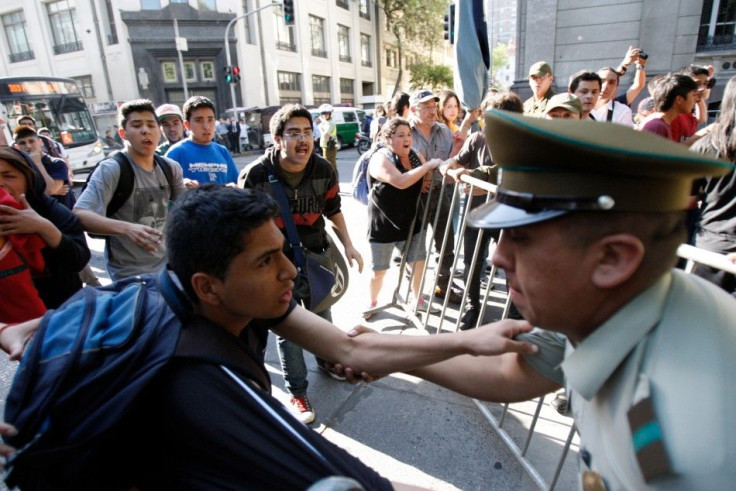Occupy Chile: Student Protest Movement Accelerates

In a movement that appears to have taken elements of both the “Arab Spring” and “Occupy Wall Street,” the protests by students in the Latin American country have taken another dramatic turn.
Dozens of high school and college students and other protesters occupies a Senate meeting for hours in the capital city of Santiago to push for new demands in reforming the education system.
According to reports, the students disputed a national education budget meeting and held banners that read plebiscite now” – a plea for the lawmakers to call for a referendum on various social problems in the nation.
BBC reported that during the chaotic scenes, Felipe Bulnes, the education minister quickly departed the meeting – protesters subsequently jeered at him and threw coins in his direction.
Police had sealed off the exterior of the building with metal barriers in order to prevent the entry of more protesters who staged a rally outside in solidarity with the students inside the government chambers.
Not until opposition politicians promised to introduce a bill for a referendum did the students finally leave.
Guido Girardi, the president of the Senate and member of the opposition Party for Democracy, spoke to the students and vowed that they would be forcibly removed from the premises by police. Girardi has been a prominent critic of how the government has responded to the students protests.
The government has also warned it may impose emergency laws in order to weaken the protest movement.
Earlier this week, police fired water cannon and tear gas at protesters in Santiago, arresting 260 people.
The student protest movement has been building momentum for six months by boycotting classes and holding rallies -- among other demands, they want free public education and they want the central government to take control of education and raise spending on public schools and universities.
In response, Chile’s President Sebastian Pinera promised to make some mild reforms and provide about $4 billion in additional funding. He also okayed a law which would allow some poor children to attend private schools through increased subsidies.
However, the adamantly refuses to allow the central government to take full control of schools.
© Copyright IBTimes 2024. All rights reserved.











